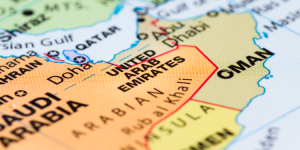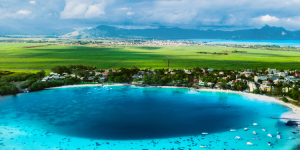
"Retire in Dubai" was launched more than a year ago by the government. This program is intended for foreign professionals who have worked in the territory and do not wish to leave. This program is, in fact, part of a new strategy set up by the United Arab Emirates to meet the needs of expatriates. But other countries like Argentina, Thailand, Mexico, etc., already have similar programs to retain expats beyond their careers.
Retire in the United Arab Emirates
The country took advantage of Expo 2020, held at the end of October 2021, to announce new measures relating to retirement visas for expatriates. The new program was confirmed on November 9. The main objective is to encourage expatriates to stay in the territory via three options. Expats can either own one or more properties with a total value of at least AED 1 million (approximately €237,000), have a financial capital of at least AED 1 million or earn at least 180,000 AED (about 42,820€) per year. These measures are part of a strategy launched in 2018, with the 5-year visa renewable for those aged 55 and over. Expo 2020 and Retire in Dubai are part of a broad vision of attracting and retaining foreign talent. Last September, the country also introduced the green visa, allowing qualified foreigners to come and work without a sponsor. The retirement visa, for its part, enhances the flexibility of the whole process while offering a range of benefits.
This program is directed by Helal Saeed Almarri, Director General of Dubai Tourism, with the General Directorate of Residency and Foreign Affairs. The director recently expressed his satisfaction with implementing the vision of Sheikh Mohammed bin Rashid Al Maktoum Vice President, Prime Minister of the United Arab Emirates and Emir of Dubai. According to him, it acts as a showcase for the United Arab Emirates, with Dubai being the most prosperous, dynamic, and popular city with expatriates. "Dubai's retirement preparedness strategy will allow expats and international retirees to benefit from the city's open-door policy, tolerance and exceptional quality of life and live in one of the world's fastest-growing and most culturally diverse cities,” says Helal Saeed Almarri.
Other retirement visas around the world
Other countries offer residency visas for expatriate retirees. In Panama, for example, the visa jubilados (or visa pensionado) grants foreigners resident status without any age criteria. However, there are some income requirements. Applicants should earn at least $1,000 per month or have real estate capital of at least $100,000. Also in Central America, Mexico offers the Mexico Pensionado Visa, accessible through permanent residency. This visa is very popular with American expatriates and is very competitive. To be eligible or this visa, candidates must prove an average (through wages, investments, etc.) of at least 181,338 CAD (approximately $8,800) over the last twelve months by producing bank statements or receive a monthly pension of at least 4,533 CAD (about $220) during the six months preceding the application. Meanwhile, Argentina's retirement visa only requires a starting capital of 30,000 Argentine pesos, which is about $300. Applicants also have to produce proof of regular income (through investments, real estate income, salaries, pension) of at least $6,000 annually.
In Asia, Thailand's new policy directly targets expat retirees and future retirees. In September 2021, Thanakorn Wangboonkongchana, government spokesperson, unveiled the government's new plan to attract nearly one million expatriates by 2026, including wealthy investors, employees, digital nomads, business leaders and retirees. The procedure is quite simple for retirees (who must be at least 50 years old). They simply have to apply for an OA visa (long-term visa) and prove that they receive a monthly income of at least 65,000 baht (about $1985) or that they have a balance of 800,000 baht in their bank account (about $24,400).
Malaysia introduced the "Malaysia My Second Home", a program allowing foreigners to stay as long as they wish in the country under certain conditions. Foreign applicants aged 50 must have a financial capital of at least 300,000 ringgits (approximately $72,000) and must maintain a minimum balance of at least 150,000 ringgits ($36,100) from the second year of their residence in Malaysia as a retiree. Owners of a Malaysian property priced at least 1,000,000 ringgits minimum can benefit from a reduction in the capital required: 150,000 ringgits instead of 300,000. However, they will have to prove that they have made the full payment for their property. Those over 50 can choose between proof of initial capital of 150,000 ringgits or a retirement pension of at least 10,000 ringgits per month. They must also maintain an income of at least 100,000 from their 2nd year of residence in Malaysia.
Attracting wealthy expatriates
Covid-19 had a significant impact on accelerating State decision-making. Hit by the crisis like other countries in the world, the United Arab Emirates want to reassure foreigners about their cultural openness and encourage them to stay on the territory, as evidenced by the relaxation of various laws (on alcohol, divorce, etc.). Expatriates currently account for 90% of the population. Being one of the best destinations for foreign professionals, the UAE now seeks to be the ideal place for retirement, but not just anyone. The country is currently focusing on business leaders, senior executives, businessmen and women, investors, master's or doctoral students, etc. Although officially the country is supposed to be open for all, it mainly aims at attracting the wealthiest expats and those with high potential.
Thailand held a similar unambiguous speech that offended many expatriates already present in the country. They denounce a policy that hides the realities of life and does not take care of foreigners who are bearing the brunt of the economic crisis. In the United Arab Emirates, human rights are a significant issue. Last September, the country rejected a European Parliament resolution condemning the human rights situation in the country. Saeed Al Habsi, director of the human rights department at the UAE Ministry of Foreign Affairs and International Cooperation, pointed out that the Europeans have "totally overlooked all the country's significant achievements regarding human rights". Nevertheless, the European Parliament kept its stand and enjoined international companies not to support Expo 2020. However, some of the world's leading firms such as L'Oréal, Swatch, Canon, Nissan, UPS, etc., did not miss the opportunity. This is enough to establish the ambitions of the United Arab Emirates a little more for the years to come.
These countries want to secure a population with high purchasing power by facilitating access to retirement visas. This means no more work or children's education constraints but stable income. For the countries involved, this step was necessary to trigger economic recovery (especially for Thailand), as it means having long-term investment.



















